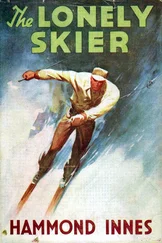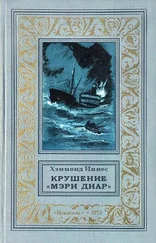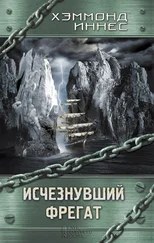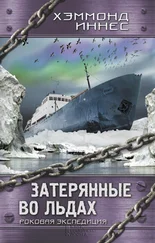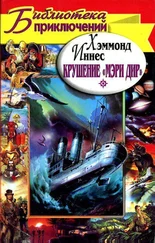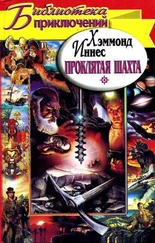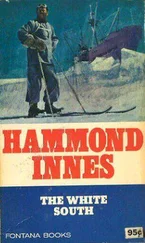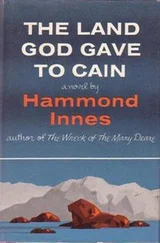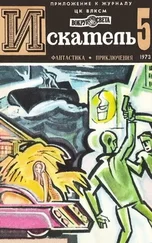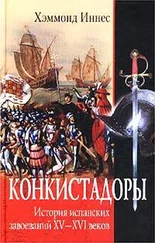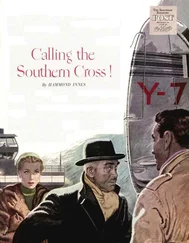Хэммонд Иннес - Nothing to Lose [= Campbell’s Kingdom]
Здесь есть возможность читать онлайн «Хэммонд Иннес - Nothing to Lose [= Campbell’s Kingdom]» весь текст электронной книги совершенно бесплатно (целиком полную версию без сокращений). В некоторых случаях можно слушать аудио, скачать через торрент в формате fb2 и присутствует краткое содержание. Город: Philadelphia, Год выпуска: 1952, Издательство: The Curtis Publishing, Жанр: Триллер, Прочие приключения, на английском языке. Описание произведения, (предисловие) а так же отзывы посетителей доступны на портале библиотеки ЛибКат.
- Название:Nothing to Lose [= Campbell’s Kingdom]
- Автор:
- Издательство:The Curtis Publishing
- Жанр:
- Год:1952
- Город:Philadelphia
- ISBN:нет данных
- Рейтинг книги:3 / 5. Голосов: 1
-
Избранное:Добавить в избранное
- Отзывы:
-
Ваша оценка:
- 60
- 1
- 2
- 3
- 4
- 5
Nothing to Lose [= Campbell’s Kingdom]: краткое содержание, описание и аннотация
Предлагаем к чтению аннотацию, описание, краткое содержание или предисловие (зависит от того, что написал сам автор книги «Nothing to Lose [= Campbell’s Kingdom]»). Если вы не нашли необходимую информацию о книге — напишите в комментариях, мы постараемся отыскать её.
Nothing to Lose [= Campbell’s Kingdom] — читать онлайн бесплатно полную книгу (весь текст) целиком
Ниже представлен текст книги, разбитый по страницам. Система сохранения места последней прочитанной страницы, позволяет с удобством читать онлайн бесплатно книгу «Nothing to Lose [= Campbell’s Kingdom]», без необходимости каждый раз заново искать на чём Вы остановились. Поставьте закладку, и сможете в любой момент перейти на страницу, на которой закончили чтение.
Интервал:
Закладка:
“I see. Well, go easy on that. We don’t want to find we’re backing people who get outside the law.”
“I’m not getting outside the law,” I said. “It’s Fergus and Trevedian who have got outside the law.”
“We-ell—” He hesitated. “So long as nobody gets hurt—”
“Nobody’s going to get hurt,” I said.
“Fine. Well, good luck. And, Mr. Wetheral, if you do bring in a welt, be sure and let us have details. Later on I’d like to send one of my staff up to have a look at things, if that’s all right with you?”
“Any time,” I said. “And thanks for your help.” I put the receiver back.
“So ye’re going to drill?” Mac said.
I nodded. “Trevedian will ask you what I’m up to. There’s no harm in telling him that I’ve been on to the Calgary Tribune. But I’d be glad if you’d forgot that bit about my taking things into my own hands. Will you do that?”
“Aye.” He gave me a wintry smile. “I’ll no spoil yer game, whatever it is. But dinna do anything foolish, lad.” He peered up at me. “Good luck to ye. And if I should see Jeannie?” He cocked his head on one side.
I hesitated and then I said, “If she should happen to ask about me, tell her there’s a vacancy for cook-general up in the Kingdom — if she wants her old job back.”
He smiled and nodded his head, “Aye. I’ll tell her that.”
I paid for the call, and we left then, riding down the hard-baked gravel of Come Lucky’s street. Through the open door of his office I caught a glimpse of Trevedian; he looked up as we rode by and stared at us, his heavy forehead puckered in a frown.
The sun was hot as we rode down to the lakeshore, and there were gophers standing like sentinels on the mounds of their burrows. Beaver Dam Lake was still and dark, mirroring the green and brown and white of the mountains beyond. Summer had come to the Rockies.
“Will you wait down here for Boy?” Bill asked.
I nodded. “We’ll camp down by the creek tonight.”
We found a suitable spot, well concealed in the cottonwood close to the waters of Thunder Creek, cooked ourselves a meal and slept for a couple of hours in the sun. Then we saddled the horses again and started up the road toward the camp. All I carried was my rucksack. The shadows were lengthening now and as we entered the timber the air was cool and damp. Every now and then Bill glanced at me curiously, but he didn’t say anything. He was content to wait and see what I was up to.
We reached the bend that concealed the road gate and its guard, and I struck, up into the timber. We came back onto the road about half a mile above the guard hut. Every now and then I glanced up at the telephone wires that hung in shallow loops from the bare jack-pine poles. There were just the two lines, and at most points it would be possible to reach them from the top of a truck. We kept to the road all the way, only pushing into the timber when we heard the sound of a truck.
About a mile above the guard hut I found what I was looking for. The grade had been getting steadily steeper as we climbed up from the creek bed and we came face to face with a shoulder of the valley aide. The road swung away to the right and we could see it zigzagging in wide hairpin sweeps as it gained height to by-pass the obstruction. Ahead of us a trail rose steeply up the shoulder, a short cut that would come out onto the road again. We forced the horses up the slope and came out onto a rocky platform that looked straight up the valley to the slide and the sheer cliff of the fault.
About a mile farther on we came out onto the road again where it swung round a big outcrop of rock. It had been blasted out of the face of the outcrop, and above it the rocks towered more than a hundred feet, covered with lichen, and black where the water seeped from the crevices. We waited for a truck to pass, going down the valley, and then we rode out onto the road.
I sat there for a moment, looking at the overhang. This was what I had remembered. This was the place that had been in my mind when I drat conceived my plan. The question was: would I find what I wanted? I rode forward, a tight feeling in my throat. Everything depended upon this. The rock had been blasted. There was no question about that as I began eagerly examining the wall of it.
“What are you looking for, Bruce?” my companion asked.
“I’m wondering if there are any drill holes,” I said.
I’d banked on the driller going ahead, drilling his shot holes, regardless of whether they’d blasted sufficiently. Twice we had to canter off into the timber while a truck went by. Each time I came back to the same point in the face of the rock, working steadily along it. And then suddenly I had found what I had hoped for — a round bole, like the entrance to a sand martin’s nest. There was another about ten feet from it, and a third. They were about three feet from the ground, and when I cut a straight branch from a tree and had whittled it down into a rod, I found two of them extended about eight feet into the rock. The third was only about two feet deep. I took off my rucksack then, got out my charges and pushed them in, two to each shot hole. The wires to the detonators I cut to leave only about two inches protruding. Then we rammed wet earth in tightly, sealing the holes. I marked the spot with the branch of a tree and we rode on.
About half a mile farther on, the road dipped again and crossed a patch of swampy ground. Road gangs had been busy here very recently. A lot of hard core had been dumped and rolled in, and just beyond the swamp the trees had been cut back to allow trucks to turn. There was good standing here for a dozen or more vehicles. Over a slight rise a bridge of logs spanned a small torrent. Again I slipped my rucksack from my shoulders and got to work with the charges, fixing them to the log supports of the bridge and trailing the wires to a point easily reached from the road. I marked the spot and climbed back onto the road.
“Okay, Bill,” I said. “That’s the lot.”
We turned our horses and started back. There was still some light in the sky, but down in the valley night was closing in.
It was past nine when we rode into our camp. We built a fire and cooked a meal, sitting close by the flames, talking quietly, listening to the sound of the creek rumbling lakeward. I felt tired, but content. So far, everything had gone well. But as I lay wrapped in my blankets, going over and over my plans, I wondered whether my luck would hold. I wondered, too, whether I wasn’t in danger of creating a situation I couldn’t handle. I was planning the thing as a military operation, relying on surprise and confusion to carry me through, banking on being able to present the other side with a fait accompli. I wondered chiefly about Garry Keogh. He was Irish and he was tough, but be ran his own rig and he had to live. His approach to the whole thing was entirely different from mine.
The following morning broke in a gray mist. The sun came through, however, before we had finished breakfast, and for three hours it shone from a clear blue sky, and insects hovered round us in the heat. But shortly after midday thunderheads began to build up to the west. Boy got in about two. He’d hitched a ride up from Quesnel in one of the cement trucks, and had picked up his horse in Come Lucky on the way down to our rendezvous at the entrance to Thunder Creek. He had a copy of the Calgary Tribune with him. They had run the story of Campbell’s Kingdom as a news item on the front page and there was a long feature article inside. Boy had seen the editor, so had Winnick. They had talked to some of the scouts from the big companies. The legend of oil in the Rocky Mountains had got off to a good start. But his big news was that Garry was already at 150-Mile House. It only needed a phone call from us to get his convoy rolling.
Читать дальшеИнтервал:
Закладка:
Похожие книги на «Nothing to Lose [= Campbell’s Kingdom]»
Представляем Вашему вниманию похожие книги на «Nothing to Lose [= Campbell’s Kingdom]» списком для выбора. Мы отобрали схожую по названию и смыслу литературу в надежде предоставить читателям больше вариантов отыскать новые, интересные, ещё непрочитанные произведения.
Обсуждение, отзывы о книге «Nothing to Lose [= Campbell’s Kingdom]» и просто собственные мнения читателей. Оставьте ваши комментарии, напишите, что Вы думаете о произведении, его смысле или главных героях. Укажите что конкретно понравилось, а что нет, и почему Вы так считаете.

